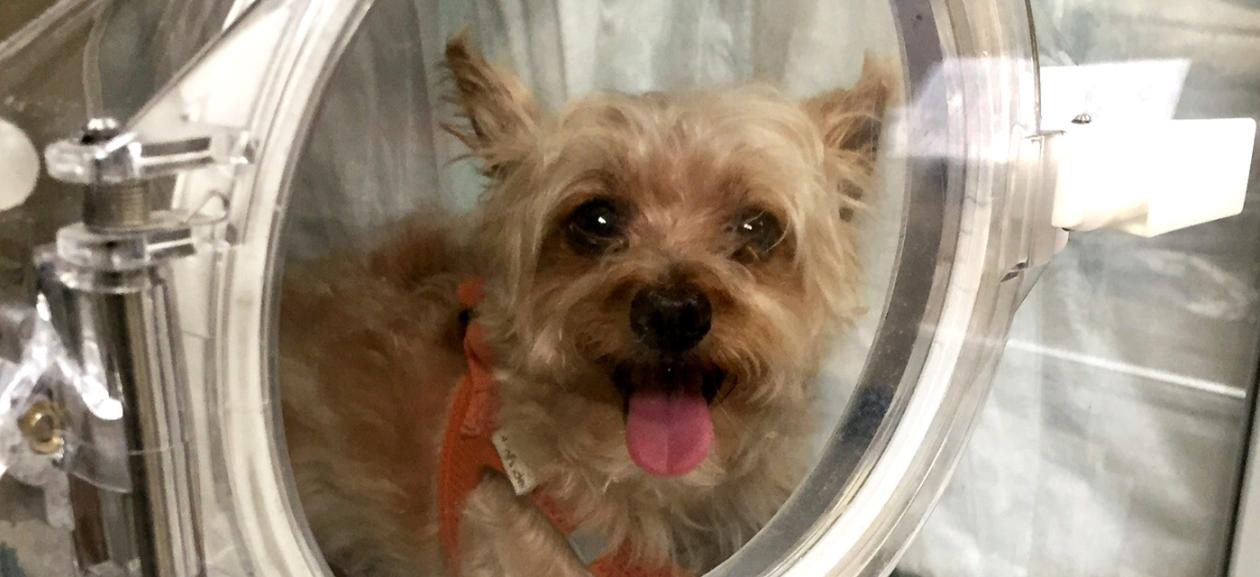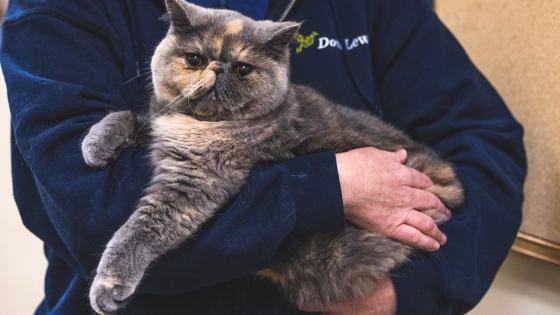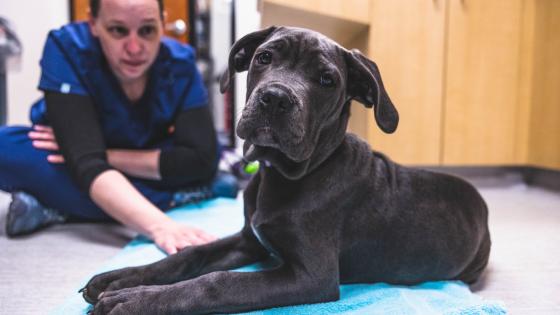
Respiratory Distress Requires Immediate Treatment
One of the most common and most serious symptoms treated by doctors at DoveLewis is respiratory distress, or breathing challenges. Whether an animal is having difficulty breathing or they are breathing excessively, this issue should be treated immediately.
“This is not a situation where an owner would want to wait to see what happens. This is a serious concern, and the underlying cause of the respiratory distress should be diagnosed and treated right away,” said Dr. Erika Loftin, a critical care specialist at DoveLewis.
Signs of respiratory distress include:
- Short, labored breaths
- Flared nostrils while breathing
- Noisy breathing
- Excessive panting
- Open mouth breathing or panting for cats
- Fast breathing
- Inability to rest comfortably or sleep
- Change in the color of the gums (anything other than bubblegum pink)
- Continuous coughing
How is respiratory distress treated? Since difficulty breathing is a symptom of a larger issue, it’s imperative that doctors get a handle on the situation in order to determine the underlying cause. Doctors will immediately provide extra oxygen through a face mask while they perform the initial exam. It’s not uncommon to also administer a mild sedative to help the animal calm down and breathe more efficiently. The animal will then be moved to an oxygen cage for extra support while doctors discuss the next steps of treatment with the owner. After stabilizing the animal, treatments can vary depending on the cause of the breathing issues.
What causes respiratory distress? Respiratory distress can be caused by numerous conditions. Some of the common causes treated at DoveLewis include pneumonia, heart failure, trauma, cancer and asthma.
What should you do if your pet is having trouble breathing? Do not delay – take your pet to the hospital immediately. “Respiratory stress can progress quickly. The animal can go from having a little trouble breathing to a lot of trouble in a short time, depending on the cause. Many of the causes of respiratory distress are easier to treat earlier in the process,” Dr. Loftin said. Unfortunately, due to the nature of this issue, doctors will rarely be able to advise you over the phone. It’s best to seek in-person treatment right away.
Please note that animals can act unpredictably when they are struggling to breathe. Be careful to avoid biting. Even if your animal doesn’t normally bite, they may act out in this stressful situation. As much as possible, allow your pet to remain in a position that is most comfortable to them, whether they prefer to lie down or sit up.
“Respiratory stress is something we see frequently, and it’s stressful for the client as well as the pet. It often happens quite suddenly, and owners have to make decisions quickly,” Dr. Loftin said. “Your best bet in this situation is to seek treatment as soon as possible. That will give your pet their best chance of survival.”



